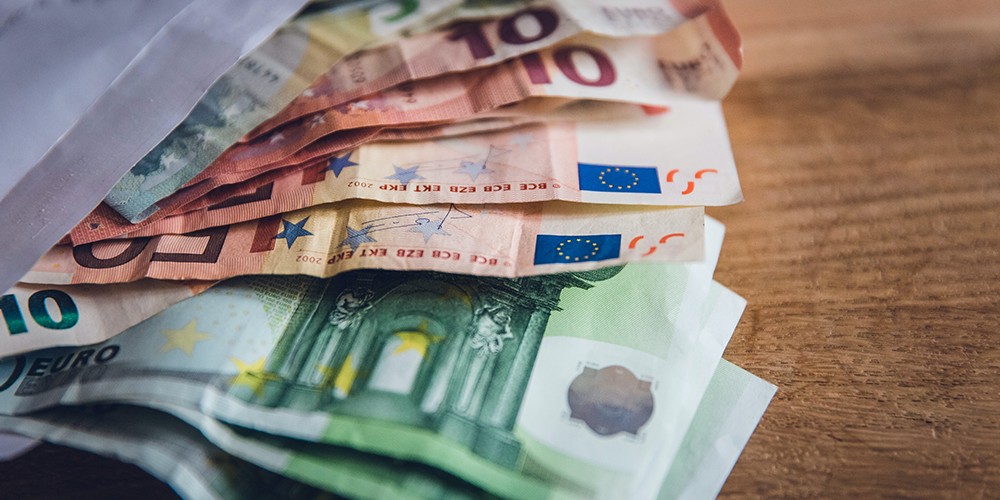Financial markets may be cheering the newly announced prospect of a Covid-19 vaccine, but central banks are less sanguine and are preparing to provide markets with fresh liquidity support. Speaking at an OMFIF roundtable on 16 November, European Central Bank Executive Board Member Yves Mersch highlighted that the ECB stands ready to ‘recalibrate all our instruments’ and ‘adjust them to the present circumstances’. He clarified that ‘the ECB is looking at existing instruments before looking at new tools.’
Mersch is the latest central banker to hint at the type of stimulus the central bank is likely to announce at its 10 December meeting. Last week, ECB President Christine Lagarde outlined a clear preference for the pandemic emergency purchase programme and targeted long-term refinancing operations as measures that have ‘proven their effectiveness in the current environment’ and are ‘therefore likely to remain the main tools for adjusting our monetary policy’.
Expanding the PEPP by €500bn and extending it to the end of 2021 would bring the ECB’s balance sheet to new highs. Since February, it has risen by almost 45% to just under €7tn. It is now at over 60% of GDP, up from under 40% at the end of last year.
Among the national central banks which account for most ECB asset purchases, the Bundesbank has been buying more German government debt as part of the PEPP than at the beginning of the pandemic. Purchases in recent months have been almost exactly in line with the capital key. Not only does this mean the PEPP’s vaunted flexibility is a less relevant feature. Additionally, because the Bundesbank has the largest ECB shareholding, making the German capital key larger than all other countries’ (25.6% against 20.1% for France and 17.5% for Italy), Germany has emerged as the largest beneficiary of the PEPP – contravening widespread belief that the programme has mainly helped less solvent southern euro members.
The flexibility of the PEPP has been critical in enabling support for countries hit hardest by the pandemic. This was important in the first Covid wave between February and July. But financial conditions are different now. Bond spreads across the euro area are narrower. Yields on Italian debt are approaching record lows, with the 30-year yield at below 1%. Last week, Greek bond yields turned negative for the first time in history.
Against these conditions, the ECB could consider absorbing the PEPP into its flagship asset purchase programme in 2021. The central bank is purchasing more German government debt as part of the PEPP than at the beginning of the pandemic, making the flexibility of the programme a less relevant feature. Hungary and Poland’s veto of the EU’s €1.8tn budget and recovery package today intensifies the need for more targeted monetary support for the euro area.

With TLTROs, the ECB has more room to innovate. TLTRO-III is set at around €1.7tn to last for three years, with two tranches left to go in December and March. The ECB has already set a one-year special interest rate period until June 2021 during which banks can acquire funds at -1% if they meet certain lending conditions.
Extending the horizon would make TLTROs even more attractive, incentivising banks to lend to the real economy and disincentivising them from frontloading repayments. Easing the threshold for meeting the conditions would help increase the size of the operation by allowing more banks to participate. This would be meaningful only if the horizon is extended or if new tranches are added to the programme, given that the deadline for banks to submit bids for the December tranche will have passed by the time of the decision.
Even with PEPP, APP and TLTROs on the table, there are limits to what monetary policy can contribute to the recovery. Central banks are right to warn against underestimating the second wave of the pandemic. While policy-makers are better prepared, changes in saving and spending patterns could be longer-lasting this time as people realise that lockdowns and associated economic conditions may be repeated. Targeted fiscal support remains the most powerful and appropriate policy tool to address the economic effects of the pandemic.
Danae Kyriakopoulou is Chief Economist and Director of Research at OMFIF. For more information about the ECB’s pandemic policy responses please visit the OMFIF Central Bank Policy Tracker.


